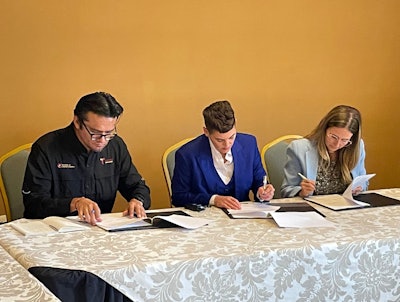
The U.S. Grains Council (USGC) and the Secretariat of Energy Development of the State of Tamaulipas have signed a memorandum of understanding to promote ethanol vehicle programs in Mexico. The five-year agreement, signed last week, aims to decarbonize public transportation, enhance renewable energy options and support U.S. ethanol exports.
USGC Chairwoman Verity Ulibarri highlighted the importance of such partnerships, stating, "It's an exciting time in the biofuels sector and I look forward to the great work yet to come from our staff in Mexico as a result of this MOU."
The agreement focuses on joint initiatives, data exchange and market studies to advance ethanol use in Tamaulipas, Mexico's top sorghum producer. It aims to position ethanol as a cleaner fuel to diversify the state's energy matrix and reduce greenhouse gas emissions.
Heidi Bringenberg, USGC Director in Mexico, emphasized the strategic importance of the partnership, noting that it supports the Governor's goal to produce ethanol within two years. The Council plans to advance education and technology-sharing efforts in Tamaulipas to advocate for ethanol blending policies.
This collaboration aligns with Tamaulipas's goal of becoming a leader in renewable energy development through innovative use of natural resources, potentially shaping Mexico's energy future with biofuels.

















